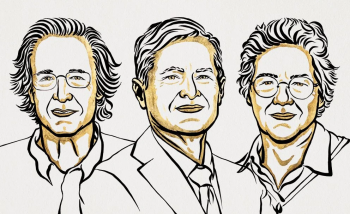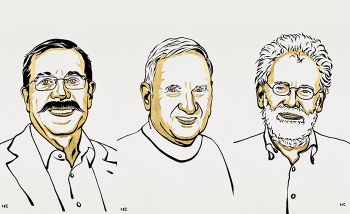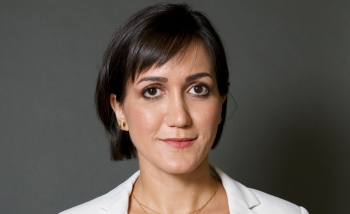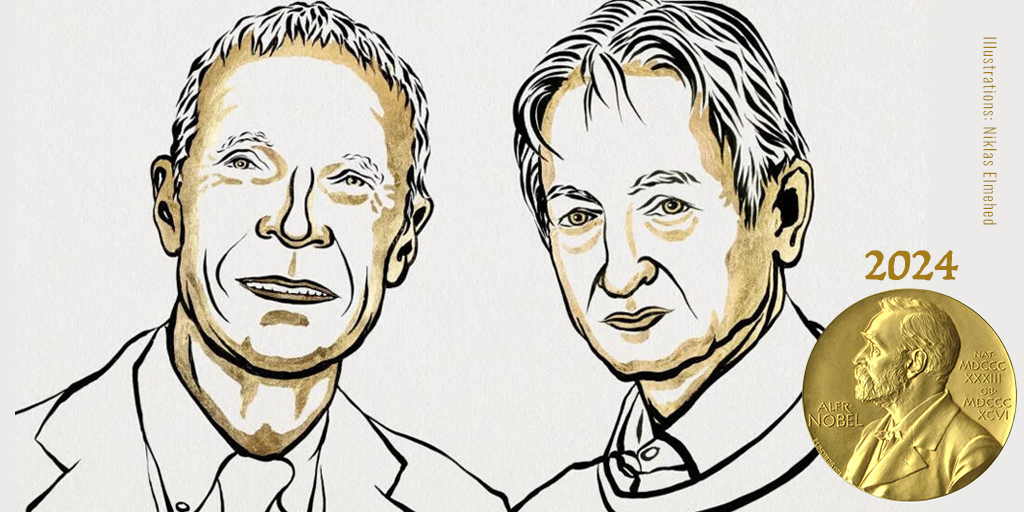This morning, the 2024 Nobel Prize in Physics was awarded to Canadian scientist Geoffrey Hinton and Princeton professor John Hopfield, both pioneers in the field of machine learning and neural networks.
Hinton is widely recognized as the ‘godfather of artificial intelligence’ due to his influential research on neural networks. He is the Chief Scientific Advisor of the Toronto-based Vector Institute and a Professor Emeritus at the University of Toronto. In 1985, Hinton designed a neural network known as the ‘Boltzmann Machine’ that could learn by being given examples, autonomously recognize properties in a dataset, and even pick out specific items in a picture. It was an unprecedented early example of generative artificial intelligence, with the ability to create new patterns on its own.
The name ‘Boltzmann Machine’ comes from 19th century physicist Ludwig Boltzmann, famous for a statistical equation that can determine the most probable behaviour in a collection of similar components (like atoms in a gas, for example) depending on their energy. Hinton’s Boltzmann Machine put that equation to work in an entirely new way, resulting in a machine that could identify patterns and even learn.
Hopfield’s contribution was equally important to the development of artificial intelligence, creating what is known as the ‘Hopfield Network’ early in the 1980s. Using ideas from molecular biology and neuroscience, Hopfield became interested in how neurons in the brain can act together to achieve more than the sum of their parts. Hopfield’s network works on a similar principle and can restore a pattern completely from ‘spare parts’, if given an incomplete or distorted version. The profound abilities of the Hopfield Network were a foundational part of Hinton’s Boltzmann Machine.
Early neural networks like the Hopfield Network and Boltzmann Machine have been improved and expanded on in the intervening decades, giving rise to a thriving industrial and economic ecosystem in the twenty-first century.
“The value of machine learning is obvious today, in everything from large language models to applications in a range of scientific fields,” said Mike Serbinis, Chair of Perimeter’s Board of Directors. “It's only been made possible by the groundbreaking foundational work of pioneers like Hinton and Hopfield. The wide-ranging implications of their achievements are still unfolding.”
“Canada has been at the forefront of this emerging field since the beginning, and this award – the fourth Nobel Prize in Physics won by a Canadian in 10 years – is a testament to Canadian innovation,” he added.
Those innovations remain central to cutting-edge research programs worldwide. At Perimeter Institute, physicists are interested in studying the intersections between artificial intelligence and quantum science.
“It is incredible to see this year’s Nobel Prize honour these two pioneers of neural networks, which underpin the modern field of artificial intelligence, said Roger Melko, founder of the Perimeter Institute Quantum Intelligence Lab (PIQuIL).
“This prize highlights the foundational role played by biological and statistical physics in the development of neural networks,” he said. “I hope it inspires a new generation of physicists to explore the exciting field of artificial intelligence in the future.”
Hinton joins Donna Strickland, James Peebles, and Arthur McDonald as Canadian Nobel Prize winners from the last decade. Three other Canadians won the prize between 1990 and 2009.
Visit the Nobel Prize website to learn more about Hinton and Hopfield’s work.
About PI
Perimeter Institute is the world’s largest research hub devoted to theoretical physics. The independent Institute was founded in 1999 to foster breakthroughs in the fundamental understanding of our universe, from the smallest particles to the entire cosmos. Research at Perimeter is motivated by the understanding that fundamental science advances human knowledge and catalyzes innovation, and that today’s theoretical physics is tomorrow’s technology. Located in the Region of Waterloo, the not-for-profit Institute is a unique public-private endeavour, including the Governments of Ontario and Canada, that enables cutting-edge research, trains the next generation of scientific pioneers, and shares the power of physics through award-winning educational outreach and public engagement.
You might be interested in




